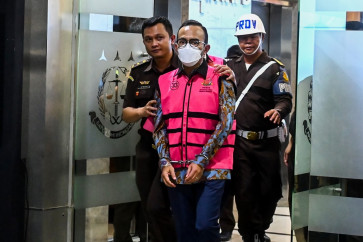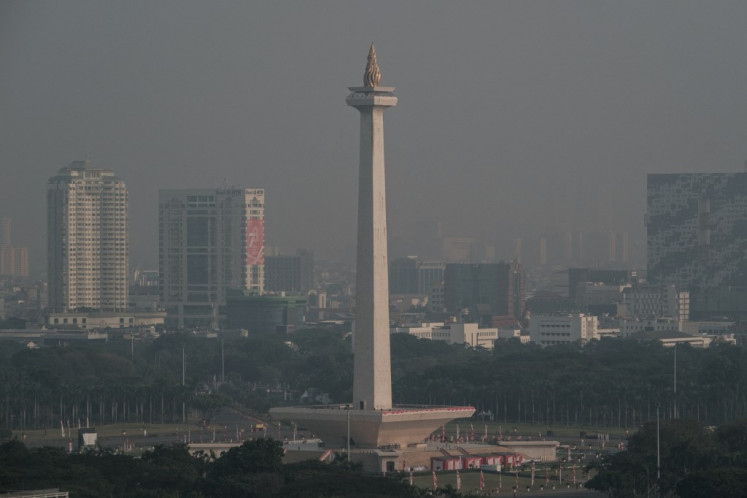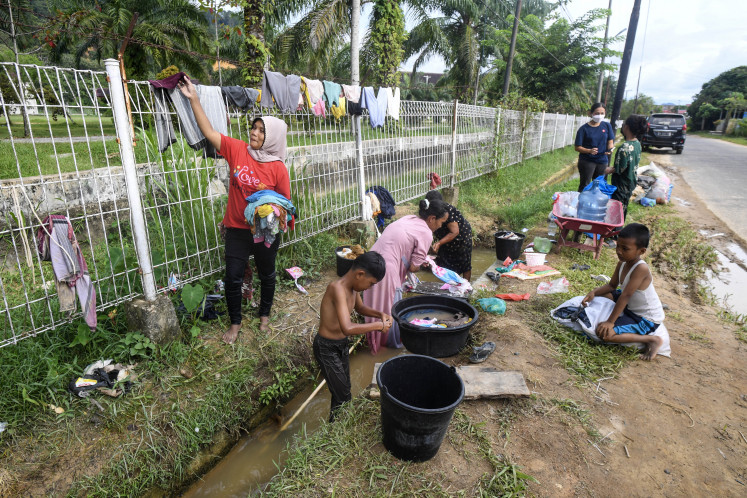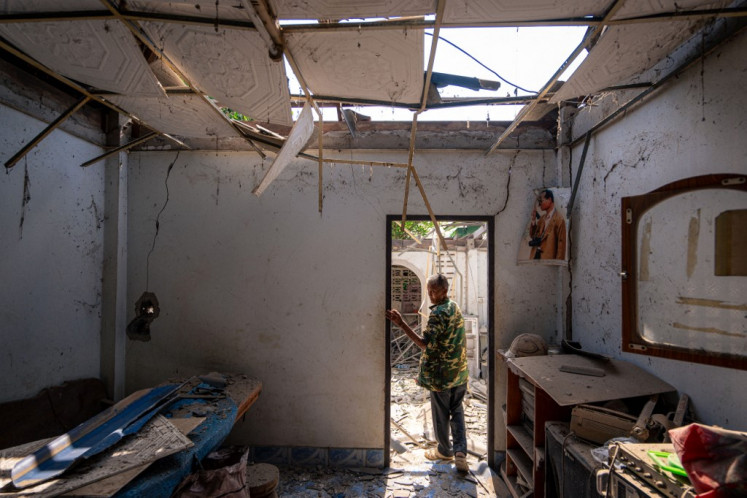Popular Reads
Top Results
Can't find what you're looking for?
View all search resultsPopular Reads
Top Results
Can't find what you're looking for?
View all search resultsSoeharto era major factor that created extremism: Expert
Illustration
Change text size
Gift Premium Articles
to Anyone
Illustration. (via kompas.com)
Political repression under then president Soeharto's administration was a major factor that created some of the extremist groups that Indonesia is dealing with today, a terrorism expert said on Thursday.
The director of the Jakarta-based Institute for Policy Analysis of Conflict (IPAC), Sidney Jones, said it was wrong to think that during the New Order era from 1966 to 1998 Indonesia never had any hard-liners and radical groups because in fact these groups existed clandestinely underground.
'Take a look at Jemaah Islamiyah [a domestic terror cell]. They were born in 1993 and emerged to fight Soeharto, gathering forces against his 'Asas Tunggal' policy and to take revenge for the Tanjung Priok massacre,' Jones said, referring to the policy that criminalized those who subscribed to any ideology other than Pancasila and to the massacre of Muslims in Tanjung Priok, North Jakarta, by the Indonesian Military in 1984.
In preventing radicalization brought by the threats of extremist groups, ranging from the Islamic State of Indonesia (NII), Jemaah Islamiyah, to the cross-border Islamic State (IS) movement, she said that strengthening democratization might be the way.
According to her, if people looked at the perspective that a government's repression would lead to radicalization, then democratization could lead to a solution to end it. However, there were also problems created by democracy itself, which in some cases actually made the work to prevent radicalization harder.
'In democracy, sometimes it's hard for the government to take action against them [extremist groups] because of freedom of association, speech and so on,' Jones told thejakartapost.com after a discussion themed 'Radicalization and De-Radicalization: Comparing Experiences, Germany (Europe), Indonesia and Beyond'.
Islamic expert and editor at the Deutschlandfunk German public broadcasting radio station Thorsten Gerald Schneiders concurred, saying that while strengthening democracy might be good for newborn democratic countries, taking democracy to the next level might not work in several countries, including in Germany.
According to Thorsten, one of the challenges in European countries right now was the xenophobia that some Germans also had, especially those of right-wing parties, toward refugees from the Middle East, who were all considered to be members of extremist groups migrating to Europe.
While in fact, Thorsten said, people should separate the refugee crisis and the emergence of extremist groups, simply because terrorists had existed in many countries even before people from conflict-ridden Syria were coming to Europe to run away from their President Bashar al-Assad, as well as from IS. (iik)










